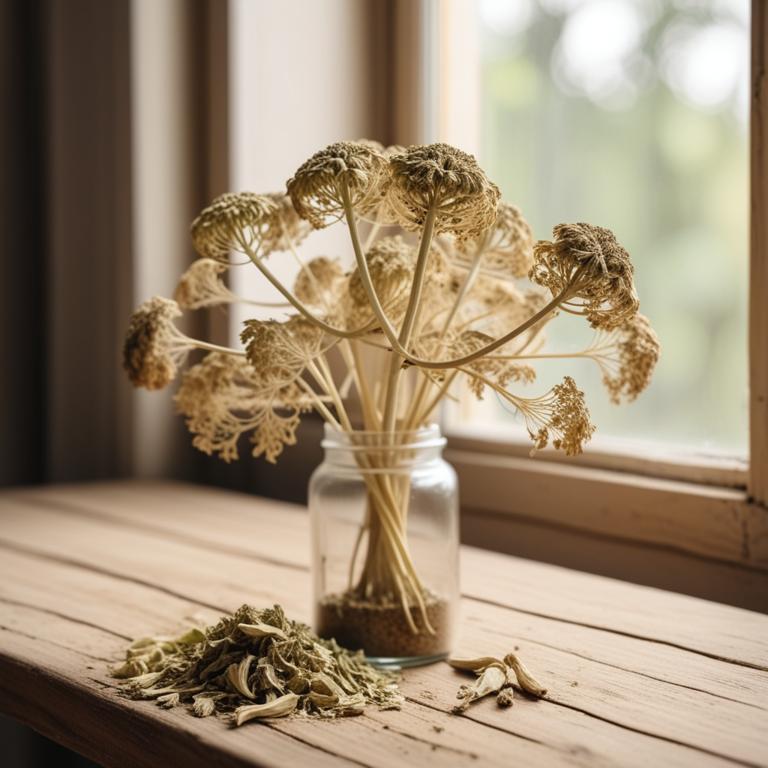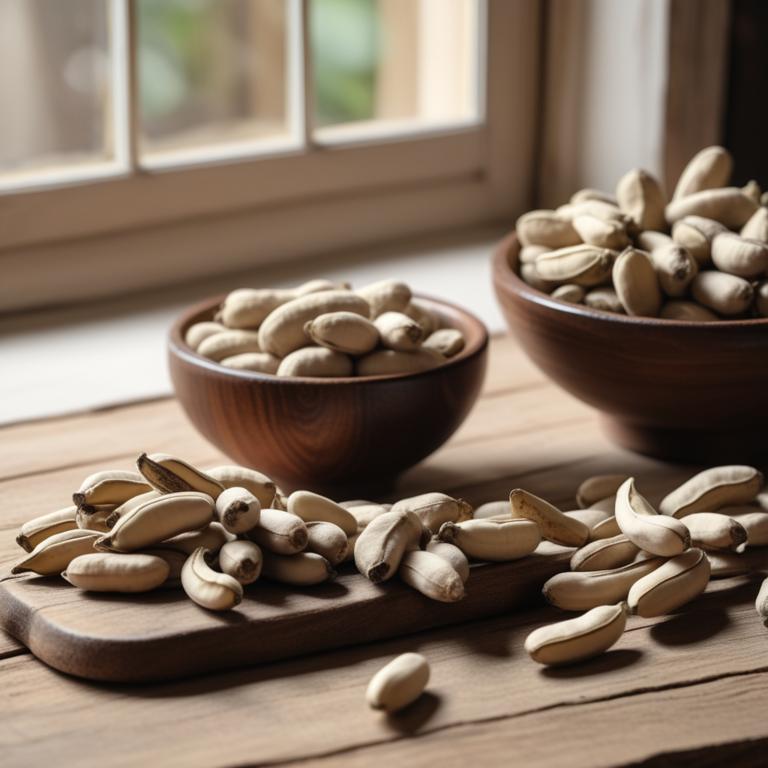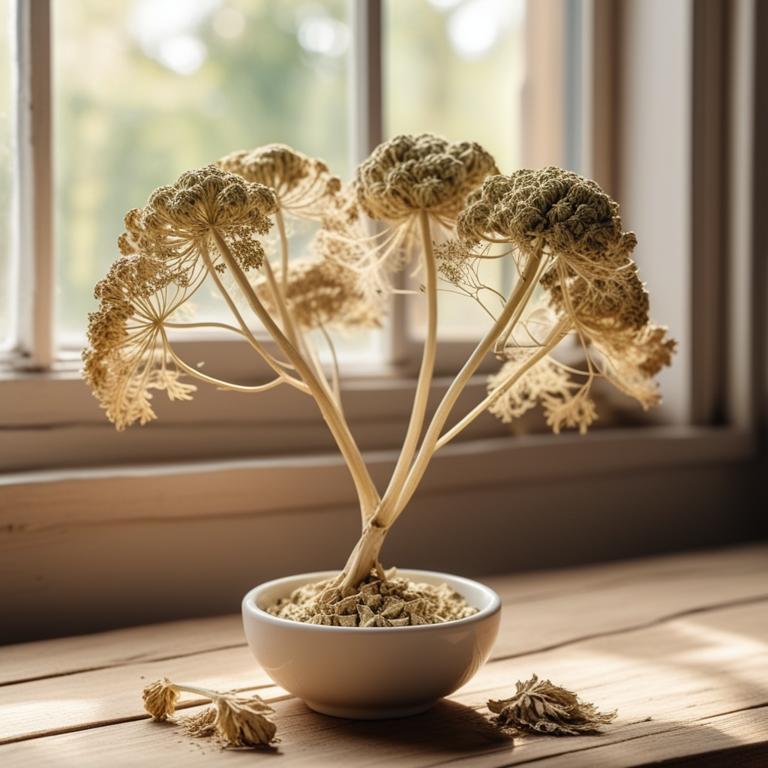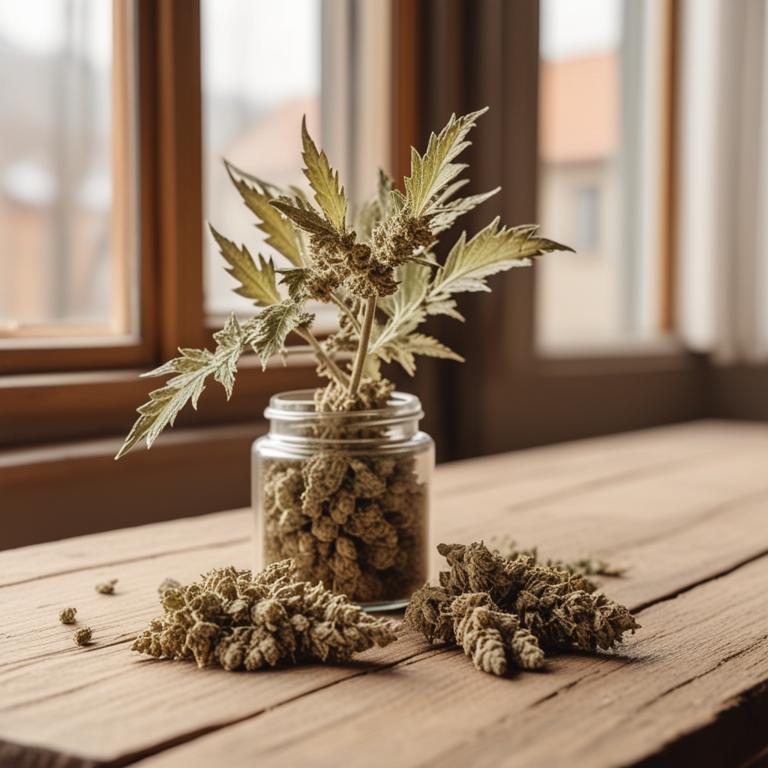Updated: Dec 1, 2024
Menstrual Cramps: Understanding the Causes and Finding Relief with Medicinal Herbs
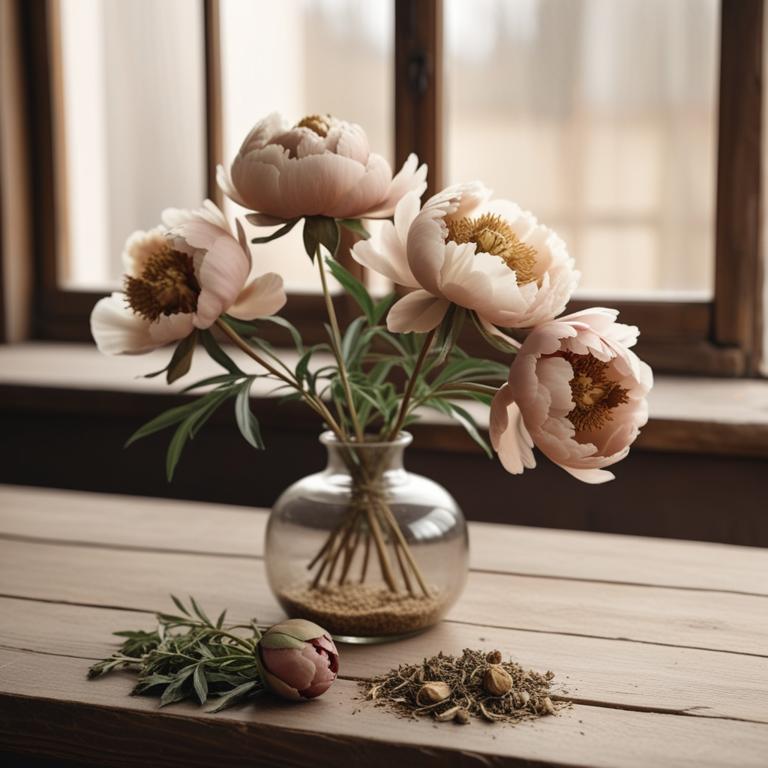
Menstrual cramps, also known as dysmenorrhea, are painful contractions of the uterus that occur before and during a woman's period.
They can be so severe that they interfere with daily life, making it hard to go to work, school, or even enjoy normal activities. But what causes these painful cramps?. The answer lies in the body's natural response to hormone fluctuations, which trigger the uterine muscles to contract. These contractions are often accompanied by increased levels of prostaglandins, hormone-like substances that cause the muscles to contract even more.
This can lead to nausea, vomiting, diarrhea, and even anxiety. But there's good news - herbal remedies can help alleviate menstrual cramps and make life more manageable during this time. Some healing herbs for menstrual cramps include ginger, which has anti-inflammatory properties, and chasteberry, which helps regulate hormone levels. Peppermint and lavender can also help soothe the uterus and reduce spasms. These herbs can be consumed in various forms, such as teas, capsules, or tinctures.
Drinking a warm cup of ginger tea or peppermint tea can be especially soothing, while applying a lavender oil-based lotion to the lower abdomen may also bring relief.
Table of Contents
- What leads to menstrual cramps?
- What benefits can herbs provide in the treatment of menstrual cramps?
- What medicinal herbs have been proven to be effective for menstrual cramps?
- What are the most commonly used herbal preparations for the relief of menstrual cramps?
- Which herbs should you avoid when managing menstrual cramps?
- FAQ
What leads to menstrual cramps?
The main causes of menstrual cramps are a combination of several factors that work together to cause discomfort.
One of the main causes is uterine contractions. During a woman's period, the uterus contracts to shed its lining, and these contractions can cause pain. Another cause is hormonal fluctuations. The levels of estrogen and progesterone drop before and during menstruation, which can lead to uterine contractions. This hormonal change can also cause the uterus to contract more forcefully, resulting in more severe cramps. Prostaglandins are hormone-like substances that cause the uterus to contract. They are produced by the endometrium (the lining of the uterus) and cause the uterus to contract and relax. When prostaglandins are produced in high levels, they can cause more severe contractions and cramps.
Inflammation is another cause of menstrual cramps. When the endometrium sheds, it can cause inflammation in the uterus, leading to pain and discomfort. This inflammation can also cause the muscles in the uterus to contract more forcefully. Muscle spasms are a common cause of menstrual cramps. The muscles in the uterus can contract and spasm, leading to pain and discomfort. This is often caused by the combination of hormonal fluctuations and prostaglandins. Finally, endometrial growth is a cause of menstrual cramps. The endometrium grows and thickens in preparation for a fertilized egg, and when it sheds, it can cause cramps.
The growth and shedding of the endometrium can cause the uterus to contract and relax, leading to pain and discomfort.
What benefits can herbs provide in the treatment of menstrual cramps?
When we're talking about using herbs to ease menstrual cramps, there are several benefits that stand out.
For one, these natural remedies can help reduce the severity and frequency of cramps, making it easier to get through the day. Some herbs have anti-inflammatory properties, which can help to calm down the uterus and reduce the pain. Others can help relax the muscles and promote a good night's sleep, which is often disrupted by cramps.
Many herbs also have a soothing effect on the digestive system, which can help with other symptoms like bloating and nausea that often come with PMS. Some herbs may even help balance hormones and regulate menstrual cycles, which can be a game-changer for women who experience irregular periods. And the best part?.
These herbs are usually safe to take and can be used in a variety of forms, from teas to capsules to topical creams, so you can find what works best for you.
What medicinal herbs have been proven to be effective for menstrual cramps?

Herbs have been used for centuries to help with menstrual cramps, and they're still a great option today.
One of the most effective herbs for this is ginger, also known as Zingiber officinale. Ginger contains a compound called gingerol, which helps to reduce pain and inflammation in the body. This is why ginger tea or ginger capsules are often recommended for menstrual cramps. Another herb that's commonly used is turmeric, or Curcuma longa. Turmeric contains a compound called curcumin, which has strong anti-inflammatory properties. This means it can help to reduce swelling and pain in the uterus, making menstrual cramps more manageable. Cinnamon, or Cinnamomum verum, is another herb that's been used for centuries to help with menstrual cramps. Cinnamon has a compound called cinnamaldehyde, which helps to warm the body and reduce cramping.
It's often taken in the form of a tea or added to food. Angelica, or Angelica sinensis, is a Chinese herb that's been used for thousands of years to help with menstrual cramps. It's said to help regulate menstrual cycles and reduce pain. Some studies have shown that angelica can help to reduce prostaglandins, which are hormone-like substances that cause contractions in the uterus and lead to cramping. Finally, licorice root, or Glycyrrhiza glabra, is another herb that's been used to help with menstrual cramps. Licorice root has a compound called glycyrrhizin, which helps to reduce inflammation and pain. It's often taken in the form of a tea or added to food. These herbs can be taken in various forms, such as teas, capsules, or tinctures.
It's always a good idea to talk to a healthcare provider before trying any new remedies, especially if you have any underlying medical conditions.
What are the most commonly used herbal preparations for the relief of menstrual cramps?
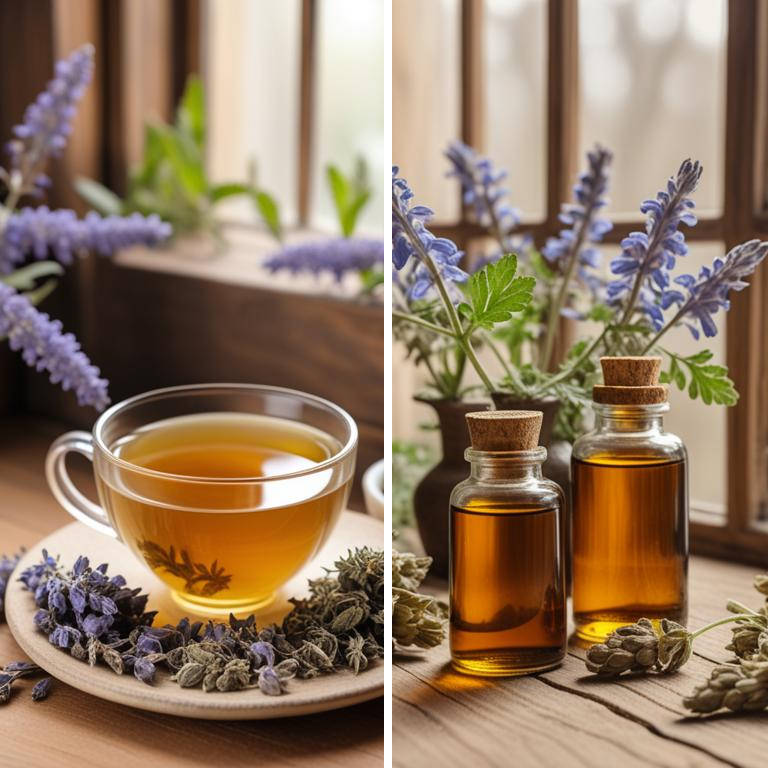
Herbal preparations are great for relieving menstrual cramps because they contain natural compounds that can ease pain and discomfort.
A decoction is a strong brew made by boiling herbs like ginger and turmeric, which have anti-inflammatory properties that can help reduce cramping. Drinking a decoction as a tea can be very soothing, especially when combined with other herbs like chamomile and lavender, which are known for their calming effects. Herbal tea is another popular way to ease menstrual cramps. Some teas, like those made from peppermint and cramp bark, contain natural pain-relievers that can help block pain signals to the brain. You can also make an infusion by steeping herbs like red clover and raspberry leaf in hot water, which can help relax the muscles and reduce cramping. For more targeted relief, you can try using a tincture, which is a concentrated liquid extract of herbs like wild yam and black cohosh.
These herbs contain compounds that can help regulate hormone levels and ease cramping. You can take a tincture orally or apply it topically to affected areas. Another option is a salve, which is a topical cream or ointment made from herbs like arnica and calendula. These herbs have anti-inflammatory properties that can help soothe and calm irritated tissues, reducing cramping and discomfort. Applying a salve to your lower abdomen or lower back can be very effective in relieving menstrual cramps. These herbal preparations can be a natural and effective way to manage menstrual cramps.
By using them in different forms, you can find what works best for you and start feeling better.
Additional Resources:
Which herbs should you avoid when managing menstrual cramps?
If you experience menstrual cramps, it's a good idea to steer clear of Paeonia lactiflora.
This herb, also known as peony, can stimulate the uterus and make cramps worse. While it's sometimes used to treat other health issues, its effect on the uterus is not what you need when you're already in pain. Vitex agnus-castus, or chaste tree, is another herb to approach with caution. It can cause uterine contractions, which can increase menstrual cramp pain. Some people use it to regulate their menstrual cycle, but if you're already experiencing discomfort, it's best to avoid it. Cassia auriculata, or sweet cassia, contains compounds that can stimulate the uterus, leading to more severe menstrual cramps.
This herb is often used in traditional medicine, but it's not suitable for women who are already struggling with pain. Taxus baccata, or yew, is not typically used in herbal remedies for menstrual cramps, but it does contain compounds that can affect the uterus. However, it's also highly toxic, and taking it can lead to serious health problems. Given the risks, it's best to avoid it altogether. Piper nigrum, or black pepper, is not usually associated with menstrual cramps, but it can still be a problem. Some herbal remedies combine black pepper with other herbs to increase their absorption in the body.
However, if you're experiencing cramps, the additional stimulation from the black pepper might make things worse.
FAQ
Are there any specific herbs that can prevent menstrual cramps?
Some herbs like ginger and turmeric have anti-inflammatory properties that may help ease menstrual cramps.
Fenugreek and cramp bark are also used to reduce pain.
These herbs can help relax the muscles and improve blood flow, which may provide relief from cramps and discomfort during menstruation.
Is it safe to use herbal remedies for menstrual cramps during pregnancy?
It's usually not a good idea to use herbal remedies for menstrual cramps during pregnancy.
Some herbs can cause problems for you and your baby. For example, certain herbs can make the uterus contract, which could lead to miscarriage or other issues.
It's best to try other ways to ease your cramps.
Are there any herbs that can reduce the frequency of menstrual cramps?
Some herbs like ginger and turmeric have properties that may help ease menstrual cramp pain.
They contain compounds that work as natural anti-inflammatories, reducing discomfort and swelling.
Consuming these herbs in tea or supplement form may help alleviate cramps, but it's essential to use them consistently for noticeable effects.
Related Articles
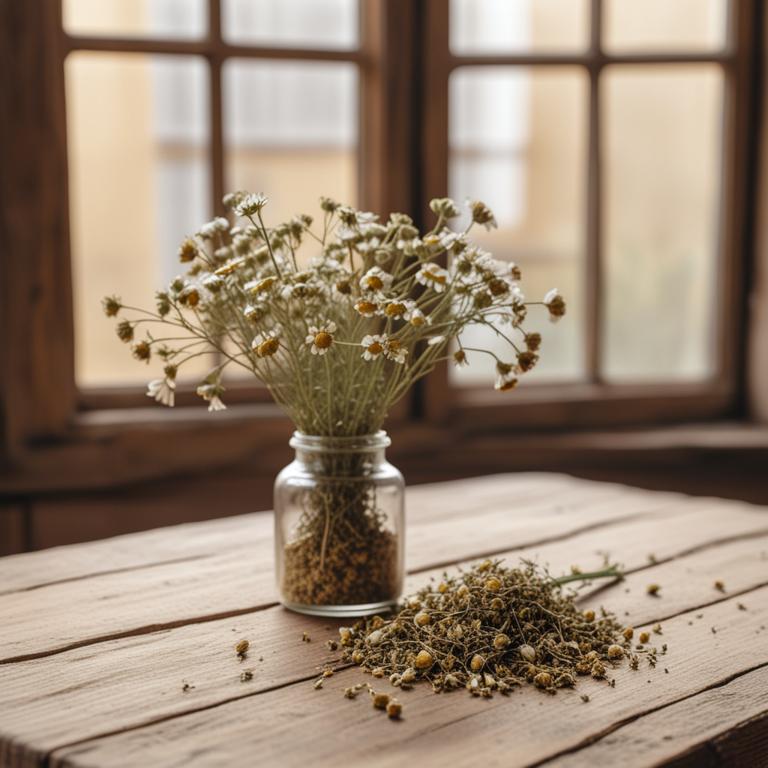
Nipple Pain During Breastfeeding: Causes, Herbal Preparations, and Natural Relief
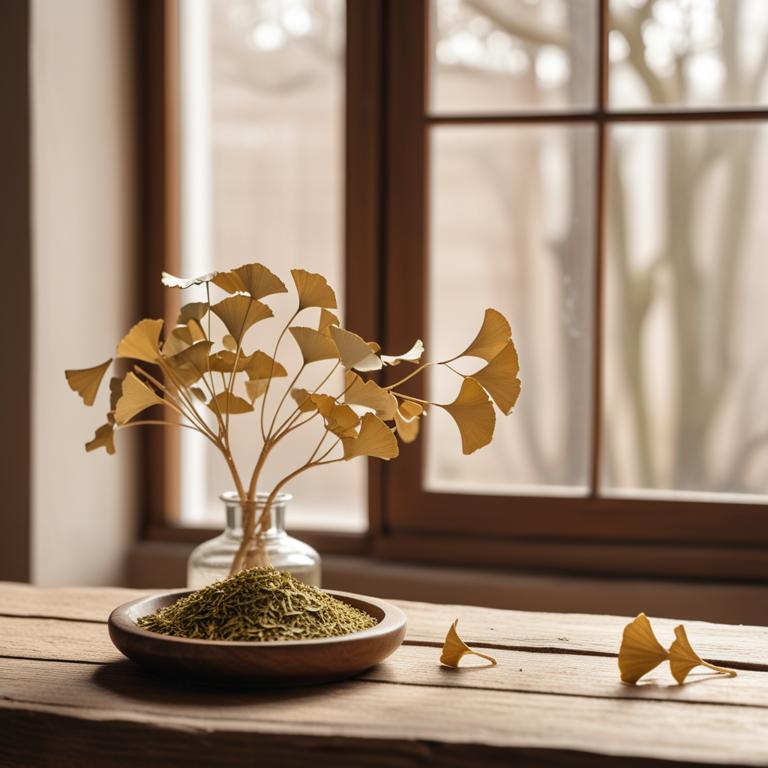
Amenorrhea Causes, Symptoms, and Treatment with Medicinal Herbs
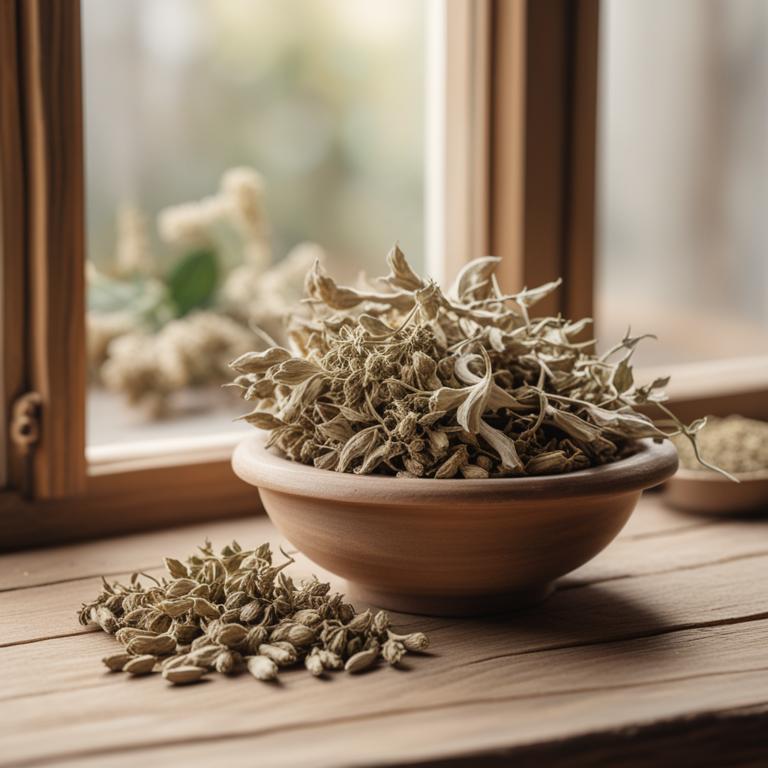
Overcoming Erectile Dysfunction with Medicinal Herbs and Natural Preparations
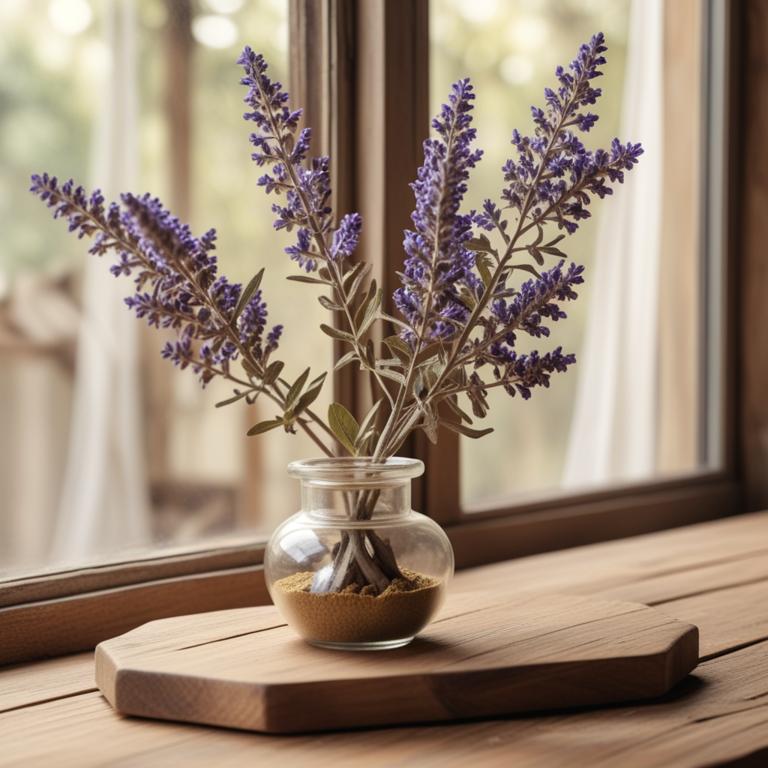
The Menopause Guide: Causes, Herbs, and Herbal Preparations
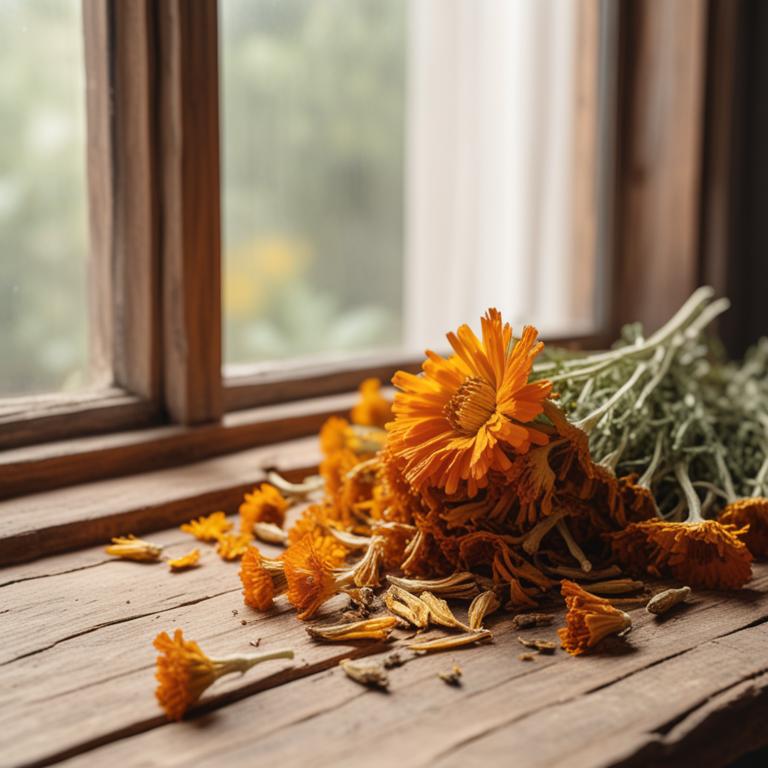
Vaginitis: Understanding the Causes and Herbal Remedies
